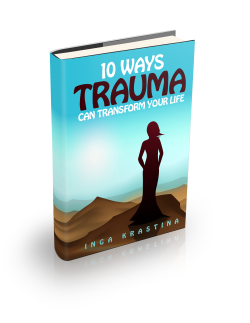What we have once enjoyed deeply we can never lose. All that we love deeply becomes a part of us.
/ Helen Keller/
In my blog I talk a lot about grief, ways to grieve, mourning, etc. Yet the website itself includes the word ‘trauma’. Without going too much into theory of psychology I will explain the difference between grief and trauma.
Grief is normal emotional response to not only loss of the person we love, but any loss – loss of health, job, relationships, loss of faith, loss of business and so on. When we lose someone or something we have held dear or have felt attached to, we grieve. That’s been like that from the time beginnings and there used to be rituals and customs in all cultures to be able to cope with the loss. In indigenous cultures those rituals are still practised, but in modern western world we have lost that too.
We even grieve losing people or things that haven’t been beneficial to us, for instance the death of abusive partner, when it’s still experienced as loss and it hurts. I yet have to meet a person who has never experienced grief in one form or another.
Trauma (I’m talking only about emotional trauma, not physical injuries) is quite contradictory and not clear term. Peter Levin says: ‘trauma is the most avoided, ignored, denied, misunderstood, and untreated cause of human suffering’. Intuitively we know when we are traumatized – when we experience something that we perceive as either life-threatening or overwhelming. As well as grief, trauma is unique and individual experience. Something inside us feels broken, or part of us dies and we have lost wholeness and in a way – innocence of life. Healing trauma then is about restoring those broken connections with oneself, one’s own body, people and the world around us.
 I remember the shock, disbelief and utter feeling of helplessness when I was told the news about my son having brain tumour. Even though already before that moment intuitively I knew something was very wrong. I was not prepared to hear that. I was not willing to hear that. My reaction was so much more than just sadness. It was deeply traumatizing and for the next year and half I needed to learn not only to accept, but to live with what was happening.
I remember the shock, disbelief and utter feeling of helplessness when I was told the news about my son having brain tumour. Even though already before that moment intuitively I knew something was very wrong. I was not prepared to hear that. I was not willing to hear that. My reaction was so much more than just sadness. It was deeply traumatizing and for the next year and half I needed to learn not only to accept, but to live with what was happening.
After my son died the next stage was to pick up pieces of my broken heart and life and rebuild it. In no way is it a linear or smooth journey. Definitely not something I asked for, no matter how much it facilitated my growth.
I believe all loss is traumatic to some degree. And all traumas include some kind of loss. The differences between trauma and grief are as follows:
- The most common reaction in case of grief is sadness; in case of trauma – terror.
- While grief reactions generally stand alone, trauma reactions include grief reactions. In trauma people are preoccupied with the traumatic event itself; they have flashbacks, images of the scene playing out again and again. In grief that preoccupation is with the lost person or thing.
- In trauma people don’t want to talk about what happened; they want to avoid all reminders of it. In grief people want to avoid the reminders of the absence of deceased person or lost thing, those reminders are painful, but at the same time people feel driven to talk about the deceased person, relationships they had and loss of them.
- In grief guilt says: ‘I wish I would/ would not have…’ In trauma guilt says: ‘It’s my fault. I should/should not have…then it wouldn’t have happened.’
- In grief anger in non-destructive, neither towards oneself nor others. In trauma anger is often violent, it may become assaultive towards oneself or others, even after non-violent trauma.
- When person moves through grief the self image is largely intact. When somebody had experienced trauma their self image is distorted.
- In grief dreams tend to be about the deceased person or lost thing, relationships etc. In trauma dreams are about self as a potential victim.
Many people are able to move through grief quite naturally. But often because of our beliefs, values in our society and the fact that we are neither taught how to grieve nor how to support those who do, it turns into complicated grief. Often unhealed traumas emerge from childhood, everyday stress adds to it and suddenly we are in the avalanche of being totally out of control with our emotions, ways we behave and interact with others.
Accumulated traumas topped up with shock of loss can have a devastating effect on one’s health, work life and relationships.
Grief and trauma do not come in neat packages. And while it is true that all loss hurts, circumstances and form of how it happens can affect greatly one’s ability to cope on a large scale.
 Enter your name and email in the form below to receive my Free e-book!
Enter your name and email in the form below to receive my Free e-book!
Speak Your Mind